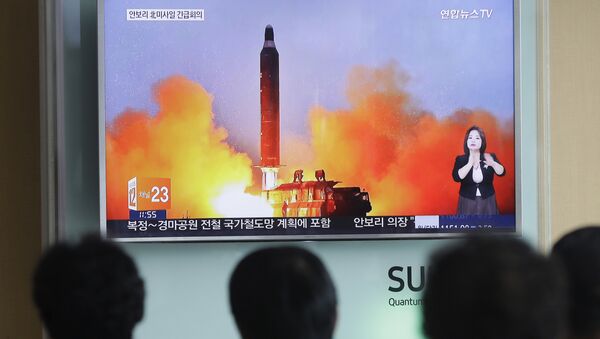"We are seriously concerned over this… We call on all sides to refrain from actions that could escalate the situation. We will closely monitor the situation and try to contribute to upholding peace and stability on the peninsula," Lu Kang said at a briefing.
The situation on the peninsula remains complex and sensitive, he added.
On September 5, Pyongyang launched three ballistic missiles in the direction of the Sea of Japan. Several days later it conducted a successful test of a nuclear warhead, which is believed to be the fifth and largest blast since Pyongyang began pursuing nuclear and ballistic missile programs. In the latest New Year's address to the nation, North Korean leader Kim Jong Un said the country was finalizing preparations for another intercontinental ballistic missile test.
On Sunday, the North Korean Foreign Ministry said the country was ready to launch a ballistic missile at any time and from any location. On the same day, former minister at the North Korean embassy in London Thae Yong-ho, who defected to South Korea in 2016, stated that North Korea seeks to complete the development of an intercontinental ballistic missile (ICBM) by the end of 2017 or in early 2018.
The developments prompted the United States to react, with US Secretary of Defense Ash Carter stating that the United States was ready to shoot down a North Korean ballistic missile in case it is coming in the direction of the country's territory or the territory of its allies.


